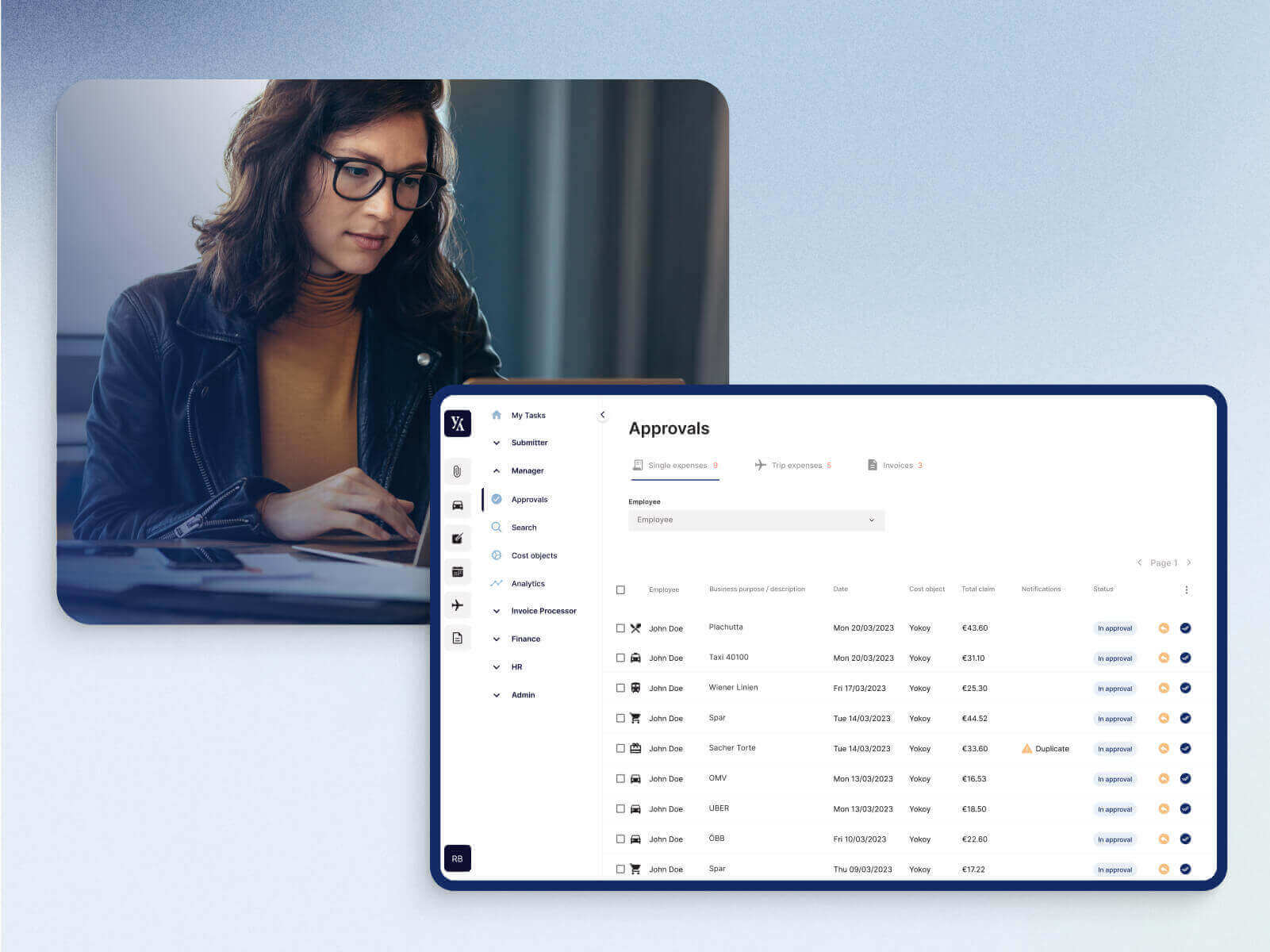Home / Is Autonomous Finance the Future We Need?
Is Autonomous Finance the Future We Need?
- Last updated:
- Blog

Co-founder & CEO, Yokoy
In an era defined by rapid technological evolution, where new advancements continually reshape the finance landscape, the question of autonomy within the finance function has gained substantial prominence.
The allure of autonomous finance is undeniable, with a striking 58% of finance professionals advocating for full automation to harness technology’s potential, as reported by PwC.
Yet, amidst this fervor for innovation, a profound dilemma emerges: Do we really need that much autonomy?
The allure of autonomous finance is undeniable, with a striking 58% of finance professionals advocating for full automation to harness technology’s potential, as reported by PwC.
The cautionary notes sound loud and clear. Research highlights that while organizations acknowledge the importance of technology in finance – 64% of CFO believe autonomous finance is the future, more than half still grapple with the challenge of balancing autonomy and control. PwC shows that 60% of CFOs believe such initiatives should start small to avoid costly failures with technology investments.
So, is complete automation in finance truly the path we must tread?
Or should we proceed with caution, meticulously balancing the compelling promise of autonomy, efficiency, and speed against the enduring demands for control and governance within finance?
The promise: Light-speed efficiency powered by AI
The promise of autonomous finance is captivating. It envisions a world where mundane, time-consuming tasks are delegated to machines, freeing finance professionals to focus on strategic endeavors.
Tedious data entry, laborious reconciliation, and the monotonous number-crunching – all entrusted to the tireless efficiency of machines. The finance team, once tethered to the desk and the routine, is now liberated to redirect their intellect towards initiatives that truly move the needle.
The promise of autonomous finance is not just captivating; it's revolutionary. It invites us to reimagine the very essence of finance's role within an organization.
Philippe Sahli, Co-founder & CEO Yokoy
Picture a CFO, unburdened by the tedium of manual data manipulation, charting a visionary course for the organization’s financial future. Imagine finance directors no longer mired in the intricacies of compliance but instead orchestrating financial strategies with unmatched precision.
This promise of autonomous finance is not just captivating; it’s revolutionary. It invites us to reimagine the very essence of finance’s role within an organization.
Autonomous finance isn’t just about incremental improvements; it’s about redefining the finance function. It’s about liberating the human potential within finance professionals and allowing them to elevate their contributions from the tactical to the strategic.
But as captivating as this promise may be, the path forward is not without its complexities and conundrums. The question remains: Is this truly the future we need, or should we tread this transformative journey with caution?
The challenge: Balancing full autonomy and control
The challenge of balancing full autonomy and control in finance presents us with a myriad of hypotheses, complexities, and considerations.
While there’s no question about the need to empower every facet of an organization to operate at the pinnacle of efficiency, we stand at a pivotal juncture where the grandeur of this vision meets the intricacies of its execution.
One of the primary hypotheses we encounter pertains to the nature of finance itself.
Finance is not a monolithic entity solely defined by numbers and calculations. It is a multifaceted discipline that encompasses safeguarding assets, ensuring compliance with a web of intricate regulations, and making sound strategic decisions.
The question that looms large is whether machines, even with their remarkable efficiency, can truly encapsulate the nuanced judgments, ethical considerations, and contextual awareness inherent in finance.
There's one more challenge that's rarely talked about: This unbridled quest for autonomy might inadvertently distance finance professionals from the very essence of their work.
Philippe Sahli, Co-founder & CEO Yokoy
Deloitte’s CFO Signal report brings forth another layer of complexity, revealing that 33% of CFOs are concerned about the potential risks associated with full automation.
These concerns are not unfounded. The transition to autonomous finance, if not meticulously executed, could introduce unforeseen vulnerabilities, ranging from data breaches to algorithmic biases. We therefore need a robust framework that ensures accountability and risk mitigation within the autonomous finance landscape.
But there’s one more challenge that’s rarely talked about.
The silent threat of autonomy: Maintaining human expertise
This unbridled quest for autonomy might inadvertently distance finance professionals from the very essence of their work.
As finance professionals cede more routine tasks to machines, there’s a genuine concern that they might become detached from the data and processes that underpin their decisions. This potential disconnection poses the risk of eroding the human expertise that has long been the cornerstone of this discipline.
On top of this, finance professionals are concerned about the potential loss of their roles due to automation. This serves as a stark reminder that the pursuit of autonomy should not be at the expense of finance professionals’ expertise.
Consider the hypothesis that as more tasks are automated, finance professionals may rely excessively on the outputs generated by machines, overlooking the critical need for interpretation and contextualization.
"The journey forward is not about the elimination of human expertise but its elevation to new heights, with the power of innovative technologies."
Philippe Sahli, Co-founder & CEO Yokoy
Data, without proper interpretation, can lead to misguided decisions and missed opportunities. This raises questions about whether a future finance professional, enamored with automation’s efficiency, might inadvertently neglect the art of discernment.
The worry is that an overreliance on autonomous systems might lead to a scenario where finance professionals become operators of machines rather than stewards of financial wisdom.
To address this silent threat, it’s imperative to view the quest for autonomy in finance as a tightrope walk. On one side lies the seductive allure of innovation, automation, and speed, while on the other is the enduring need for accountability, judgment, and expertise.
Much like a tightrope walker, finance professionals must maintain balance.
So, where do we go from here?
The future of finance indeed lies at this juncture, where technology’s allure meets the timeless principles of financial prudence.
Rather than blindly embracing tools and systems in the quest of achieving a fully autonomous finance department, we should aim to striking the perfect equilibrium between innovation and accountability.
This will ensure that finance remains not only efficient but also deeply rooted in the profound expertise of its professionals.
Simplify your invoice management
Book a demoRelated content
If you enjoyed this article, you might find the resources below useful.

